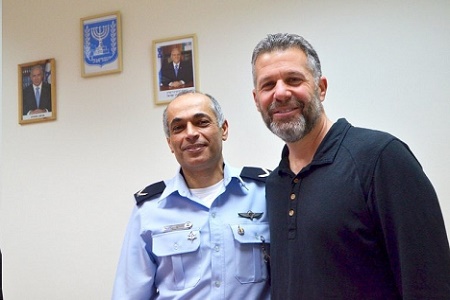FBI Arrests Suspect in Israel in Connection with Threats to Jewish Organizations
The arrest last week of an individual in Israel suspected of sending threatening messages to Jewish organizations in the U.S. and several other countries provides a glimpse into one of the FBI’s key roles overseas.
The FBI and Israel National Police worked jointly to locate and arrest the individual, according to an FBI statement issued March 23. The threatening calls over the last several months fostered fears about a rise in anti-Semitism in the United States. Investigating hate crimes is a top priority for the Bureau, which praised its law enforcement and intelligence partners: “The FBI commends the great work of the Israeli National Police in this investigation,” the statement said.
In this and other overseas cases, FBI investigations are greatly helped by having strong relationships already in place with host countries. In Israel, where terrorism is a perpetual threat and American citizens are frequently among those injured or killed in violence between Israelis and Palestinians, the FBI has a long history of working with the country’s national police and intelligence agencies.

“It’s immensely important that the FBI and other members of the U.S. intelligence community develop strong, long-lasting relationships with international partners in the intelligence arena and also in law enforcement,” said Cary Gleicher, the FBI’s legal attaché in Israel. The FBI has more than 63 overseas offices, or legal attachés, and each relies heavily on its local counterpart to support FBI cases.
“The FBI’s job overseas is, essentially, to work with the host country to collect evidence and intelligence against interests that may affect us in the homeland or may affect U.S. interests abroad,” said Gleicher, who has worked in FBI outposts in Austria, Cambodia, Singapore, and the U.S. Virgin Islands. Gleicher, an agent since 1989 who opened the legal attaché office in Tel Aviv in 1996 and is on his third tour in Israel, said laying a foundation of cooperation—assisting foreign countries with cases that have a U.S. nexus while seeking their help with FBI cases—is the primary role of FBI agents stationed overseas. “Our job is to build and foster long-term relationships that allow FBI leadership, both at Headquarters and our field offices, to communicate with any host country intelligence and/or law enforcement executives at any time.”
In Israel—as elsewhere—the FBI works traditional criminal cases that have connections or subjects within a host country, such as cyber, financial, and organized crime investigations. Earlier this month, for example, an organized crime case that originated in 2011 in the FBI’s Washington Field Office led to arrests and charges against 19 suspects in cities in Europe and Israel, as well as in the U.S. Also this month, the FBI added a Jordanian woman to its Most Wanted Terrorists list for her suspected role in a 2001 bombing in Jerusalem that killed 15 people, including two Americans, and injured 122 others, including four Americans.


